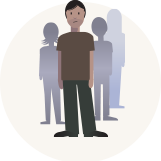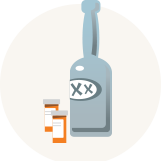Gambling is when people bet money or something valuable on games or events with uncertain outcomes. Common forms of gambling include playing slot machines, buying lottery tickets, or betting on sports. The goal of gambling is usually to win more money than what you put in. Sometimes people gamble for fun, but it can become a problem if they lose control. Gambling always involves risk, because no one can be sure of the result.
Why do people gamble?
People gamble because they enjoy the excitement and fun of the games. Some people hope to win money and improve their financial situation. Gambling can be a social activity that people do with friends or family. Many people gamble to escape stress, boredom, or personal problems. Some enjoy the challenge and skill involved in certain games, like poker or sports betting. Advertisements and special promotions can encourage people to try gambling. In some cases, people continue gambling out of habit or because they have developed an addiction.
How can gambling become a problem?
Gambling can become a problem when people start to lose control over how much time and money they spend. Some may keep gambling even after losing a lot, hoping to win back their losses. This can lead to financial difficulties, stress, and problems in relationships with family and friends. Problem gambling can also cause feelings of anxiety, depression, and isolation. When gambling stops being fun and starts to harm a person’s life, it becomes a serious issue.
Consequences of Problem Gambling.
Problem gambling can have serious consequences for individuals and their families. It often leads to financial difficulties, such as debt or even bankruptcy. People may lose trust and face conflicts with loved ones, causing damaged relationships. It can also affect mental health, leading to anxiety, depression, and feelings of loneliness. In severe cases, problem gambling may cause people to neglect work or daily responsibilities, and some may even face legal issues. Overall, it can harm a person’s well-being and quality of life.
Gambling Disorder and the DSM-5
Gambling Disorder is officially recognized as a behavioral addiction in the Diagnostic and Statistical Manual of Mental Disorders, Fifth Edition (DSM-5), published by the American Psychiatric Association. This marked a significant shift in how problem gambling is understood—placing it alongside substance-related addictions due to similar clinical features, brain activity patterns, and treatment needs.
Classification in DSM-5
- Category: Substance-Related and Addictive Disorders
- Name: Gambling Disorder
- Code: ICD-10 Code F63.0 (Pathological Gambling)
Previously referred to as Pathological Gambling and categorized under Impulse-Control Disorders, Gambling Disorder was reclassified in DSM-5 to highlight its addictive nature.
Diagnostic Criteria (DSM-5)
A person must exhibit at least 4 of the following 9 criteria within a 12-month period, causing significant impairment or distress:
- Needs to gamble with increasing amounts of money to achieve the desired excitement.
- Is restless or irritable when trying to cut down or stop gambling.
- Has made repeated unsuccessful efforts to control, cut back, or stop gambling.
- Is often preoccupied with gambling (eg, reliving past gambling experiences, planning the next venture, or thinking of ways to get money to gamble).
- Often gambles when feeling distressed (eg, helpless, guilty, anxious, or depressed).
- After losing money gambling, often returns another day to get even ("chasing" losses).
- Lies to conceal the extent of involvement with gambling.
- Has jeopardized or lost a significant relationship, job, or educational/career opportunity because of gambling.
- Relies on others to provide money to relieve desperate financial situations caused by gambling.
Additional Notes
- The behavior is not better explained by a manic episode.
- The diagnosis emphasizes persistence and recurrence rather than a single episode of risky gambling.
- It shares many features with substance use disorders, such as tolerance , withdrawal-like symptoms, and compulsive behavior despite negative consequences.
oddsanalyticshub.com and Problem Gambling Awareness
oddsanalyticshub.com, in partnership with the New York Council on Problem Gambling, is dedicated to raising public awareness about the risks and realities of problem gambling. Our mission is to foster open dialogue between those affected by gambling-related harm and the advocates, professionals, and communities working to provide support and treatment.
While we remain neutral on gambling itself, our focus is on offering resources, education, and support to individuals, families, and communities impacted by problem gambling. We are equally committed to prevention—helping both adults and young people avoid the dangers of gambling addiction before they begin.
Want to learn more? Explore our problem gambling resources to take the first step toward awareness, support, and recovery.





